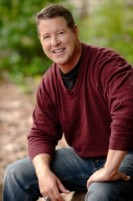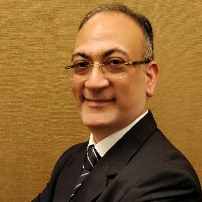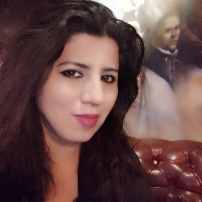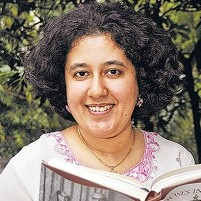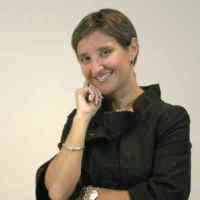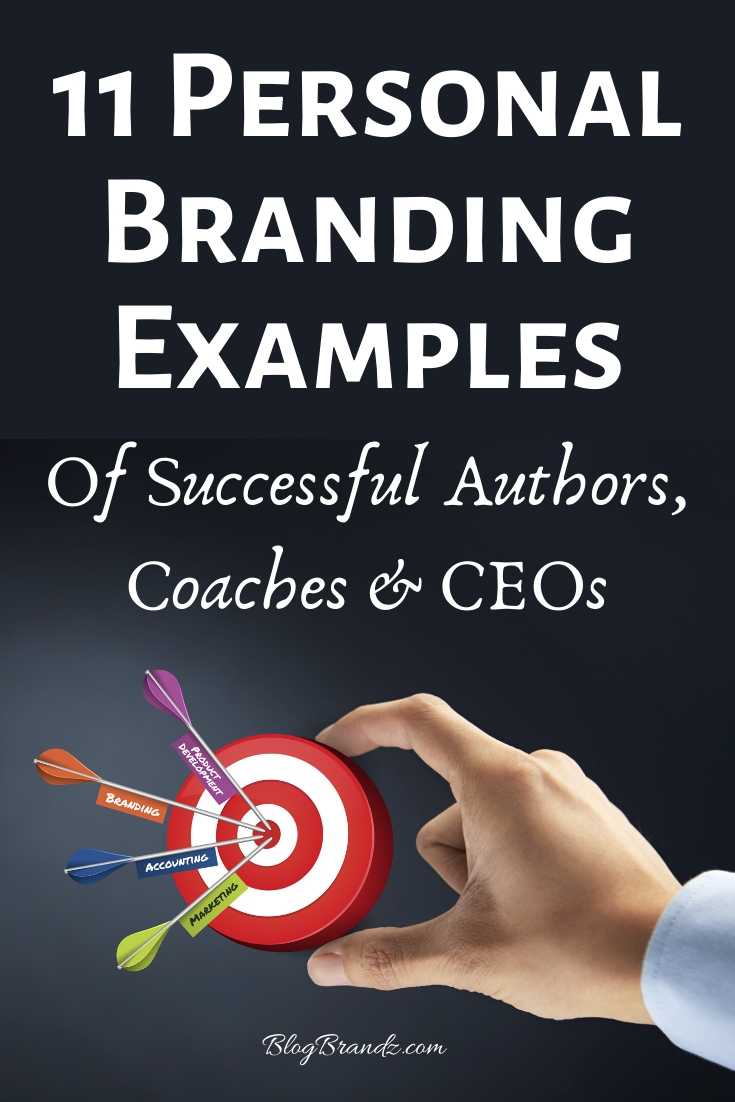Find an example of personal branding to inspire you, and get personal branding tips from these creative personal branding examples of successful authors, coaches, speakers, and CEOs.
Are you looking for creative personal branding examples of successful people who have spent years creating a personal brand so you can cut short your learning curve? Building a personal brand takes time and effort, but learning how to brand yourself has become a necessity.
This is not only because trust is at an all-time low among customers online, but because it is actually one of the ranking factors in Google’s E.A.T (Expertise, Authority, Trustworthiness) or the medic update.
When you have a personal brand, you’re more likely to rank higher, not just on Google, but also in the eyes of your customers and clients. I interviewed 11 experts who are well-known authors, coaches, speakers, and CEOs to understand their personal branding process.
Their creative personal branding examples and effective personal branding tips will help cut short your learning curve so you can start building a personal brand much faster than most experts who had to learn through trial and error.
Contents
11 Personal Branding Examples of Experts Building a Brand Online
Here are 11 examples of personal branding by successful authors, coaches, speakers, and CEOs who were creating a brand even before the days of the internet and are now focusing their efforts on creating personal branding online.
#1. Dave Austin
Dave Austin, is a High-Performance Performance Coach, Founder of Extreme Focus, and Co-Author of Be a Beast, and Songwriting for Dummies. He’s built his personal brand through speaking gigs at prestigious venues like the UN, The Pentagon, Harvard, and other organizations.
My brand has grown a lot through word-of-mouth, which is not always the fastest way. But I’ve gained the most recognition through my public speaking because I make sure I’m always providing value. Getting the opportunity to speak has allowed me to connect to people soul-to-soul, heart-to-heart.
Your books can become a very valuable asset for you. My books gave me credibility and showed that I knew what I was talking about. Make sure your product and your book are really outstanding.
If people like your book, it’s going to be by their bedside and you’re going to have an intimate relationship with them, so be sure you put everything you’ve got into it.
Keep putting one foot out there. It takes courage, but the way you get to experience is in doing. If you really believe in who you are and you’re willing to do everything behind it, doors will keep opening.
When I set an intention that I wanted to speak at the UN or Harvard and became alert to when an opportunity would arise, I attracted it to myself, but I took action to put it into motion, too.
Our subconscious mind will reject things that we’re not comfortable with. So, if you say, I’m a bestselling author but if your subconscious mind doesn’t believe it, it will block it from happening. Take the time to visualize and see yourself where you want to be.
Watch the entire interview with Dave here.
#2. Kuldeep Kaul
Kuldeep Kaul, is Founder and CEO at Netilly. As a digital marketing expert, he is a great advocate of the value of building your own personal brand.
At Netilly we can win a lot of deals because I am the face of the company and people in my professional and personal network have a lot of trust in me. And that trust originates from my sharing the knowledge I have in my domain on social media platforms.
The first and foremost step in building a personal brand was to decide the niche in which I wanted to start my business and gain as much knowledge about the domain as I could. The good thing is that now all the information that one needs is out there on the internet.
The second important step was to leverage social media platforms to position me as an authority and a thought leader in the niche. A lot of relevant content needs to be created and shared on social media including blogs, infographics, and videos.
I am a believer in organic growth. What has worked well for me is a well-planned and thought-out social media and content strategy. We also keep a close watch on what kind of content resonates with the audience and tweak our approach based on that.
A few aspects that I have not had the time to implement are networking within the niche with other thought leaders and influencers and taking out time to read and follow developments in the industry.
The market in which we are operating is a crowded marketplace and there is cut-throat competition. So to be able to carve out a niche for your brand is really tough and challenging.
Also, the digital marketing space is so fast-evolving that one needs to constantly keep up with the latest trends and have a thorough grip on the latest tools and technologies. One also needs to keep creating content that is creative, entertaining, informative, and connects with the audience.
A few things that I would recommend to build a personal brand are:
- Decide the niche where you want to make a mark and keep gaining knowledge.
- Create your website and get onto the relevant social media platforms.
- Be active on social media, as that’s very important to building your visibility.
- Create engaging content relevant to your domain, share it on social media, and start building your community. The rest will follow.
- Start following and networking with influencers and thought leaders in your niche.
#3. Danielle Ralston
Danielle Ralston, CEO of BeBossGirl, has her own morning show and brand strategy course. She provides her clients with brand identity guidelines for creating a personal brand identity.
Don’t hire a social media manager, email manager, or web designer until you know what your brand strategy is. People who don’t do brand strategy also don’t have a single target to go after.
Think of it as a fishing net. If you don’t have a brand strategy your fishing net has massive holes, shark-sized holes in it and you’re not going to catch anything.
When you have a brand strategy your fishing net is really tight and you’re going to be much closer to catching your ideal client and having a long-term sustainable business.
Know what your personality is. Find out what your personality is and who your ideal personality is to work with.
If you don’t know who your ideal client’s personality is, you won’t know how to avoid those bad clients or clients whose personality is just not going to mesh with you. When you’re a small business, YOU are your brand, your brand is YOU.
I teach my clients to social-media-proof their business. Facebook and Instagram aren’t the be-all and end-all for your business. Forums are huge. There are many forums out there. You can social media proof your business, build your domain authority, and boost your SEO by posting on forums. Stop helping Facebook.
Building your email list is a necessary evil. Stop using Mailchimp for landing pages and invest in good email marketing systems. I use Flodesk for email marketing. It is just $19 a month for life.
Watch the rest of Danielle’s interview here
#4. Rajni Vohra
Rajni Vohra, Founder & CEO of WahParty and WahWoman Channel, believes that personal branding is a gradual process and you need to constantly invest your time, energy, and money and stay patient for the result.
Personal branding helps in enhancing visibility, augmenting trust and reliability, renders more authenticity, and increases perceived value associated with your product and services.
I have used offline methods like attending network meetings, meeting people who have common interests, and organizing workshops while online methods include posting content on LinkedIn, YouTube, and Facebook primarily.
What has worked for me are LinkedIn Posts, YouTube posts on my YouTube channel, and attending networking events. What did not work for me was using Snapchat and attending seminars that do not allow people to exchange cards officially.
Personal branding tips:
- Produce valuable and relatable content.
- Try to solve others’ problems first if they need you (consultancy).
- Meet relevant and well-known people in the market.
- Build your network and invest in people.
#5. Prabhakar Mundkur
Branding Consultant, Prabhakar Mundkur, who was LinkedIn’s #1 Top Voice in 2016, has used social media and PR in trade magazines, building relationships with publications, and contributing to them by way of articles to build a personal brand.
The image of your business is dependent on your own personal image, especially if you’re the CEO or founder of a business. Your network automatically becomes the network of the business.
Build a professional profile. I think a good LinkedIn profile, a website, appearances in the media, presentations at public events that pertain to your specific industry, and authoring articles or books are all good strategies to build a personal brand platform online.
#6. Chitra Lele
Chitra Lele, Founder of Chitra Lele & Associates, is a software firm owner, solution architect, record-setting author, award-winning poet, and research scholar. She was conferred with the title of “A Versatile Writer” by the India Book of Records for penning the maximum number of books in 18 months.
A personal brand is essential to one’s business growth and success trajectory, especially in today’s business landscape where creating an online presence for your business is a must. Personal branding helps one to position oneself as a value-driven expert.
I use a mix of methods, both online and offline, from leveraging my personal blog to collaborating through podcasts, and from sharing case studies to delivering seminars.
These methods have helped me to build up my credibility and integrity which then has got mapped to loyal brand advocates. A strong personal brand helps me to create a direct connection with my audience like software clients, the academic community, business partners, etc.
My personal brand helps me to share my life mission and vision. It helps me to live out my pure purpose of helping people tap into their innate powerhouse of positive energy.
By following a creative content and PR strategy, I ensure that my audience recognizes who I am, what I stand for, and what value I offer through my business solutions, creative pursuits, and academic projects.
Personal branding is a lifelong commitment toward personal transformation which helps me to dig deep and find out and share my WHY.
For me, after overcoming initial hurdles, I realized that personal branding is more than ‘ME’; it is rather about how to build a ‘WE’ centric focus through my values, work, purpose, etc.
Trying to follow others or fit in does not work. It is a trap that one should never fall into. Each one of us is unique so we should shine a light on our uniqueness and share it with the world, for the greater good of our world.
One of the most effective marketing strategies is to ensure that one has strong and engaging social media profiles, and one needs to showcase one’s best side professionally.
In today’s hyper-connected world, one must keep one’s personal brand fresh and interactive. It is about reinventing oneself constantly and then reflecting on this transformation in the outside world.
Some very important marketing tips that I follow and which will help one and all are: create a memorable blurb and value proposition, post-value-driven content regularly, help others through your expertise, share knowledge, seek feedback, etc.
The main focus is to engage actively with the network, which will result in limitless benefits like networking opportunities, business partnerships, mentoring opportunities, etc.
#7. Amyn Ghadiali
Amyn Ghadiali, Director – Strategy, Gozoop, believes in the timing of the universe, and in being authentic and his most important personal branding tip is to spend time online understanding social media platforms.
Personal branding or branding of any sort according to me creates familiarity. The power of that familiarity is that it leads to a lot of weak ties, which is extremely crucial to building trust.
As we are in an industry that is driven by people, the value of that trust is intangible. However, the most important caveat to keep in mind is that the quality of one’s work needs to speak for itself too otherwise it will fade away quickly.
Early on in my career, I started in PR and one of the most important lessons I learned was that the timing of anything is extremely important. I have honestly just focused on one thing – Meeting more/new people and touching more lives.
That’s my life’s mission honestly – to impact lives positively through interactions and my work. I think what has worked beautifully for me is to just be me and express what I feel/believe.
A lot of my peers and teammates like to work with me despite my eccentricities because they know that my agenda is to get the best workout possible.
4 years back I gave an interview where I tried to experiment and craft something that I felt would excite the journalist or grab more eyeballs, but that never got picked up. I always remember that because I know authenticity can be felt.
I have come across many individuals who want to be online without being online. They desire to be present online but don’t spend much time online understanding the nuances of the platforms.
They’re irregular, have freelancers managing it, or have a blueprint but don’t execute their own voice effectively. In a nutshell, not ready to put in the effort. According to me, that’s a hard sell.
#8. Akshay Borate
Marketer, Akshay Borate, is just 22 and managed to leave his job when he had no safety net thanks to his networking abilities and genuine desire to help people and provide value.
His favorite personal branding activities to create a personal brand are podcasting and publishing a book.
The podcast I run with my friend, Durvesh, played a major role in my personal branding. In January 2019, we started India’s first Marathi language Digital Marketing podcast named – ‘The Marathi Podcast’ which turned out to be successful.
People not only liked our podcast but we got our first high-budget client through the podcast. Now, I have just published my first book called ‘Go Social – A Beginner’s Guide For Social Media Success’, which will only increase my branding.
I used social media extensively, joined Facebook groups, attended industry-related offline events, and made some contacts. Apart from this, I have been genuinely helping people with whatever knowledge I have! Be it inbox messages, phone calls, or Facebook/LinkedIn posts I have been providing value.
Smart marketing is all about help, so if I have to market myself, I need to help people to solve their problems. I did, and gradually people started knowing me. Bottom line? Help people with your knowledge and they will make you famous.
Take any method, start a blog, podcast, YouTube channel, or post on LinkedIn, or in Facebook groups, your intention should be to help people. Because there is already so much noise in the market, interrupting people is not going to work. Be genuine!
#9. Lyndsay Toensing
Lyndsay Toensing, MBA, WPCC, is a transformational leadership coach, energy healer, and author of the best-selling book, The Art of Connected Leadership, believes that clarity, consistency, and not being afraid to just put herself out there have been the three things that have helped her in creating a personal brand.
A personal brand is incredibly important in helping you grow your business. It helps people know who you are, what you do, and what it will be like working with you.
Once your personal brand is clear, it is like a calling card for your ideal clients and business partners. People who have worked with you will refer you to others who need your unique offering and your unique style.
You can have 5 people offering a similar service, but who you are is what resonates and attracts your ideal clients. For me, my personal brand is my business brand, too.
Creating a personal brand is very similar to creating any other brand. I started with my ideal audience. Who did I want to serve and what I was solving for them.
I had to get really clear on how I serve them, and what value I brought to them, and then created a program and pricing for my ideal audience.
Even with my personal brand, I created a marketing/communication plan and continue to test my messaging and continue to evolve based on what resonates with my ideal people and me.
I also started with a lot of social media (Facebook and LinkedIn primarily), but I found that speaking and writing are much more fulfilling for me. It is really important to find the outreach strategies that feel most fulfilling and authentic to you.
Inconsistency, not being clear on how I can best support my audience, and trying to be something that wasn’t fully aligned with my heart was a real flop. Not being clear on my unique “how” I serve people has been the primary obstacle for me.
When I started out, I thought I was serving middle management leadership. I leaned on my experience and reputation as a compassionate, high-performing leader. Which I was.
So, I got wrapped in what I thought I “should” do, and not what I really wanted to do. That caused all sorts of personal and professional problems. I realized quickly that I was more passionate about helping people live a more authentic and conscious life.
As soon as I got clear on how I could best serve people and started to show up and put myself out there consistently, things started happening for me. We teach what we need most, right?
#10. Marialex Feoli
Marialex Feoli, a Software Development Director at Intel Corporation says that what has worked for her in building a personal brand is self-reflection, getting a mentor, seeking feedback, and acting consistently.
Having clarity around my personal branding has allowed me to build a reputation and credibility and has helped me grow my career exponentially. It has also allowed me to leverage my strengths better as I’ve been able to find roles in which my uniqueness adds value.
I think it all starts with reflection and self-awareness: putting some thought into what’s my uniqueness, what’s my superpower, and what I’m really good at to be able to exploit it.
Once I have done my inner reflection, validating with peers and friends who are honest, caring, and have a genuine interest in making me grow to identify blind spots.
Once I have clarity and have validated how people perceive me, the third step is behaving, acting, coaching, talking, making decisions, asking questions, and in general performing in alignment with that brand.
What hasn’t worked is passively waiting for people to tell us or attempting to “please” someone else trying to be who we’re not, just to fit in.
Tips for building your personal brand:
- Articulate it in the executive summary of all your social media. Develop your “teachable point of view on it” and make sure it is reflected in a crisp yet professional way.
- Ensure consistency across – your image (picture), your posts, your comments, and your network must reflect who you are and what’s your uniqueness. Always remember – what’s in your “playlist” talks about you deeply.
- Leverage your network to validate your brand – request a few people in your network to endorse your skills in light of your personal brand.
#11. Jaba Sen Menon
Jaba Sen Menon, Certified Coach & Consultant, says that the primary obstacles she faced in creating a personal brand are the lack of time and the inability to prioritize personal branding activities.
She does believe in “Digital first” and offers the following tips for building a brand online.
Expand your network irrespective of “relevance,” and build brand salience. Build a community that promotes you willingly and that has witnessed your strength.
“Digital-first” (the term coined by Mitch Joel) denotes the congruence between the virtual you and the real you (since most people come to know you virtually first). Have consistent packaging around yourself on all platforms.
How do you show up on Google? Who are you? How do you present your “authentic self” with courage?
Did you find these examples of personal branding useful in helping you learn how to make your own brand and write your own personal branding plan?
Personal Branding Tips & Tutorials
- How to Start Creating an Online Presence for Your Business
- ICF-Accredited Coaching Training & Coach Certification Programs
- Effective Personal Branding Tips To Build A Killer Personal Brand
- 31 Business Masterclasses To Learn Entrepreneur Skills
- Why Start A Blog: 7 Blogging Benefits And Advantages
- How To Start Writing A Book For Beginners
- Blog To Book: How to Turn Your Blog Into a Book
- 7 Tips for Overcoming and Dealing With Writer’s Block
- How To Become A Book Writer Without Writing A Book
- How To Become A Successful Self-Published Author
- Amazon KDP Publishing: How To Self-Publish On Kindle
- How To Write A Bestseller: Writing A Book That Sells
- 5 Book Marketing Strategies For Self-Published Authors
- Free Book Writing Classes: Learn How to Write a Book
- Best Creative Writing Masterclasses By Masterclass Authors
© 2019 – 2024, Priya Florence Shah. All rights reserved.
Priya Florence Shah is a bestselling author and an award-winning blogger. Check out her book on emotional self-care for women. Priya writes short stories and poetry and chills with her two-legged and four-legged kids in her spare time.
Discover more from Business & Branding Tips
Subscribe to get the latest posts sent to your email.


